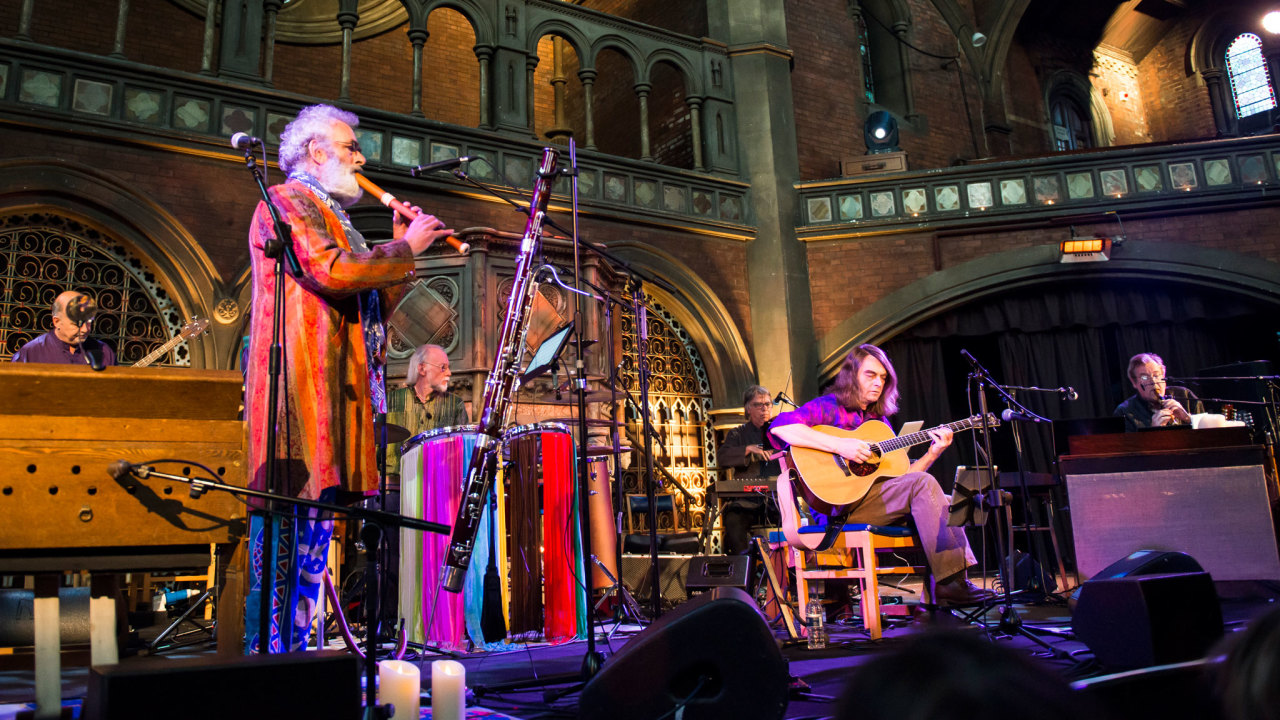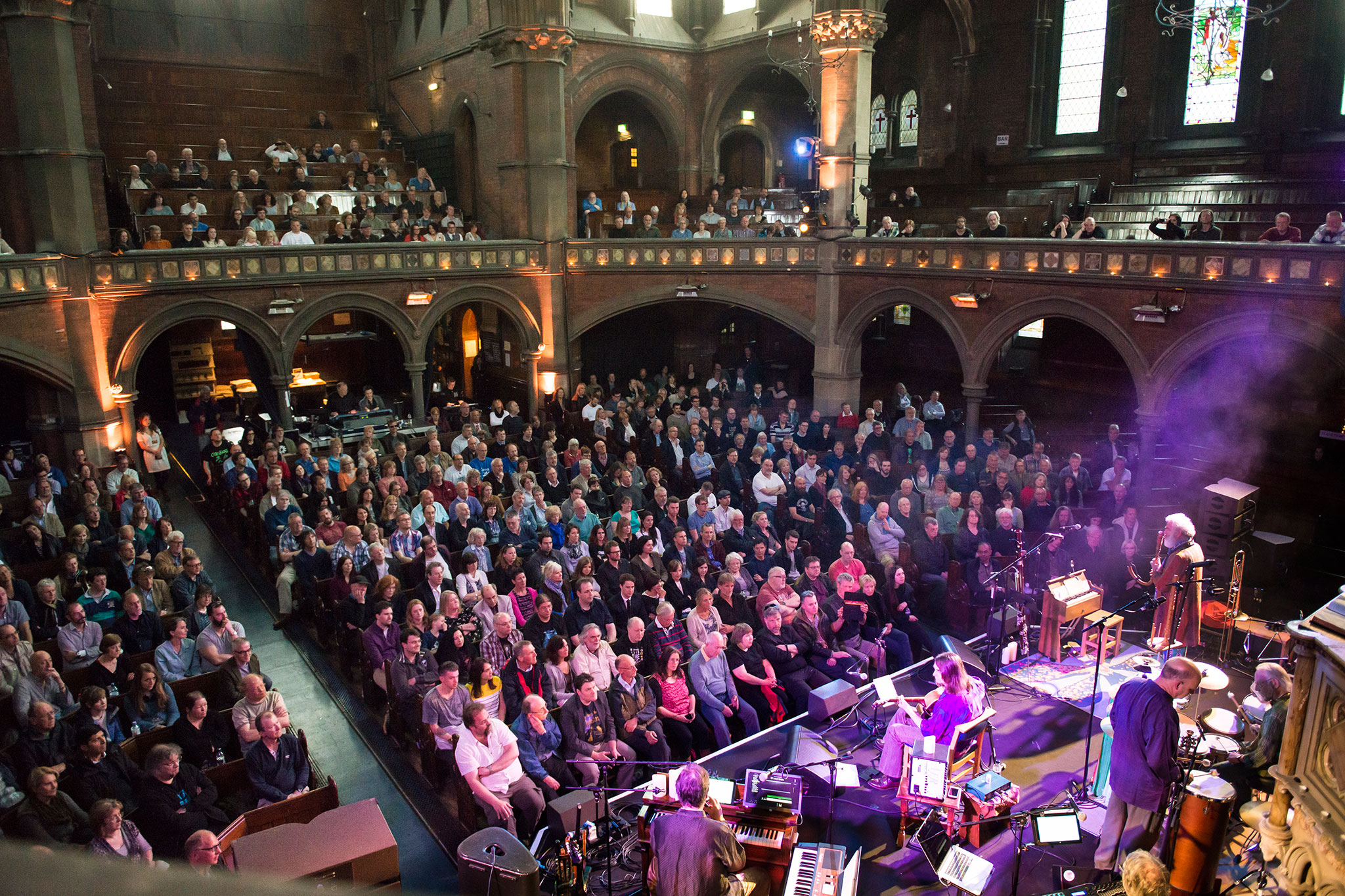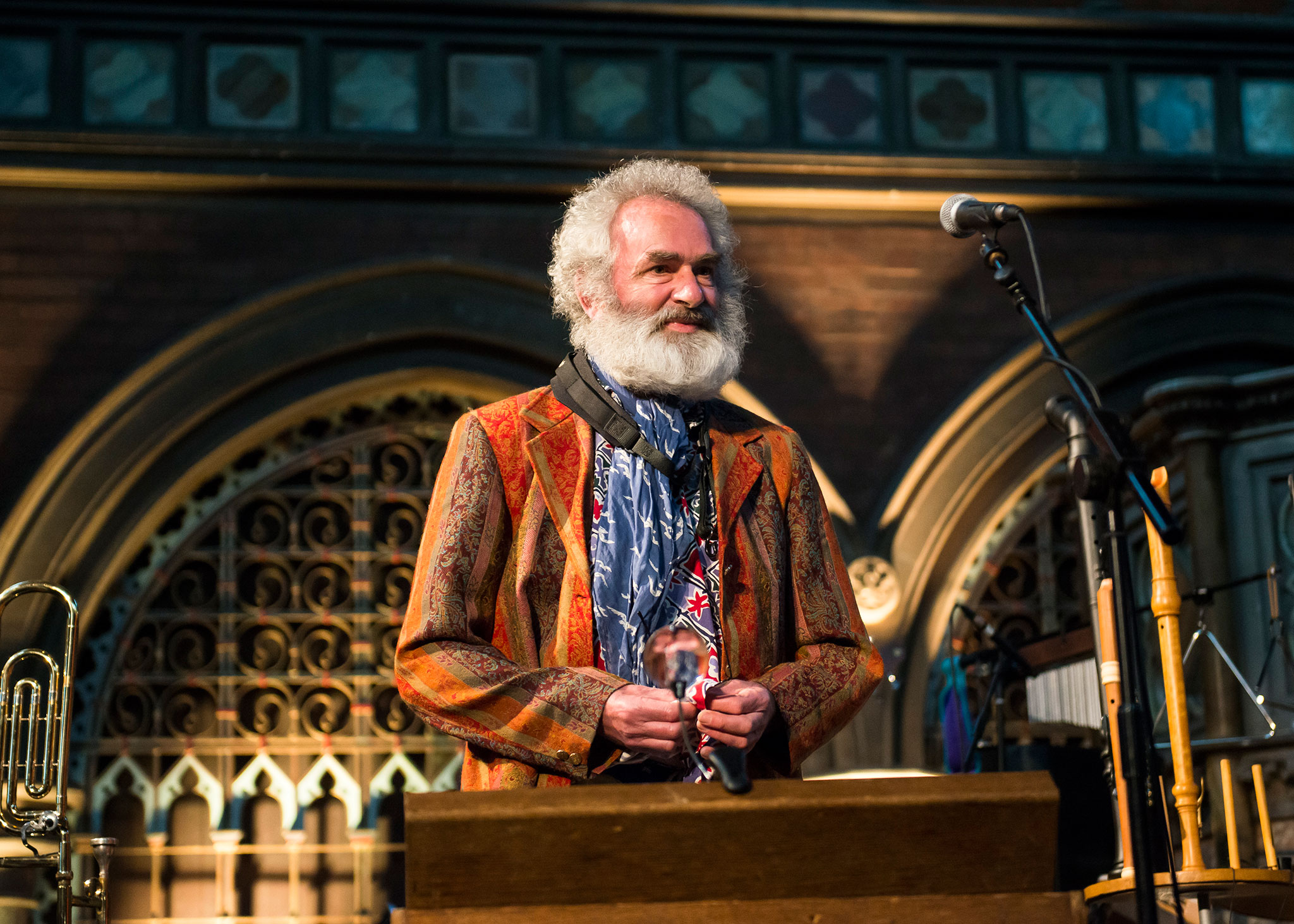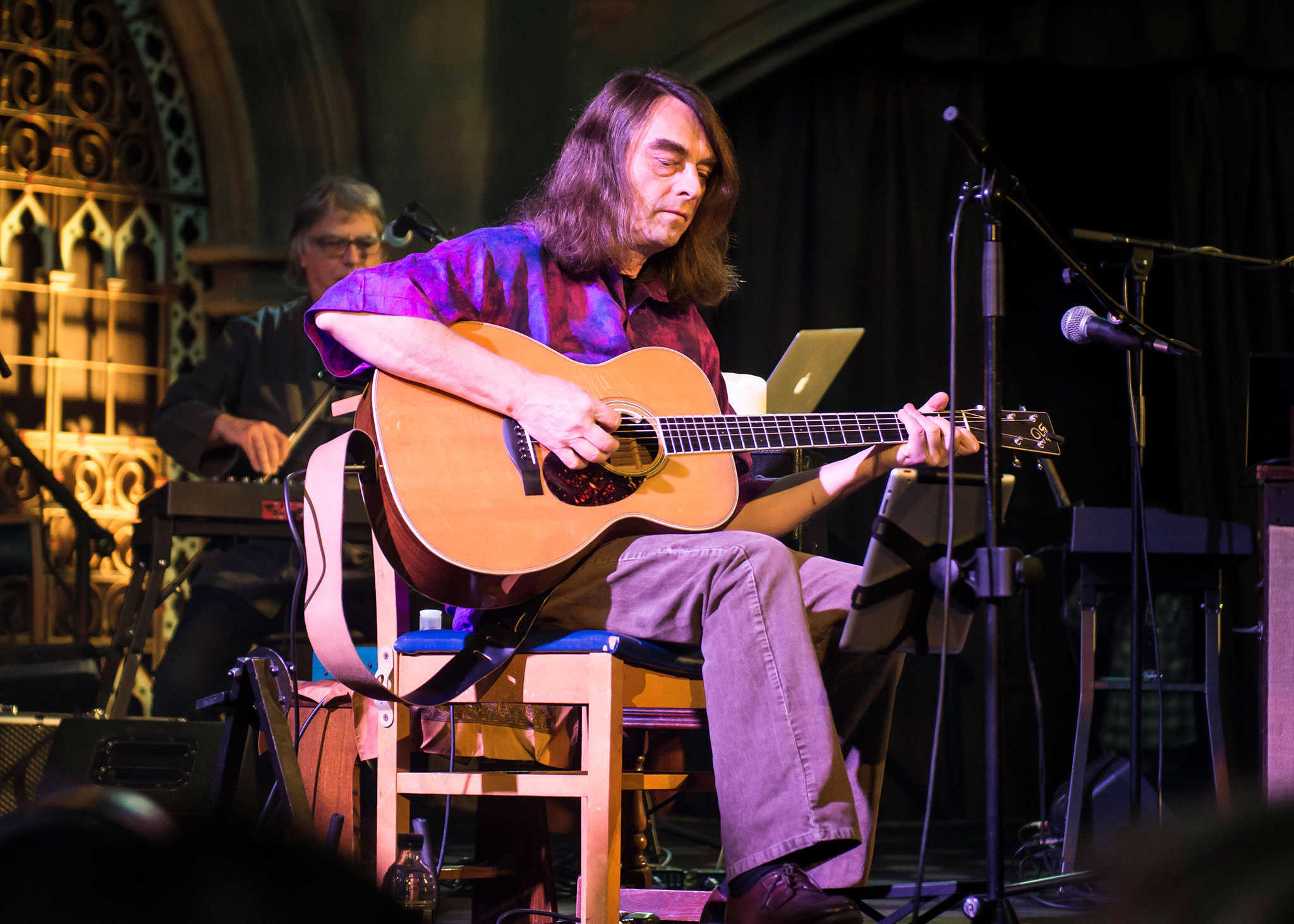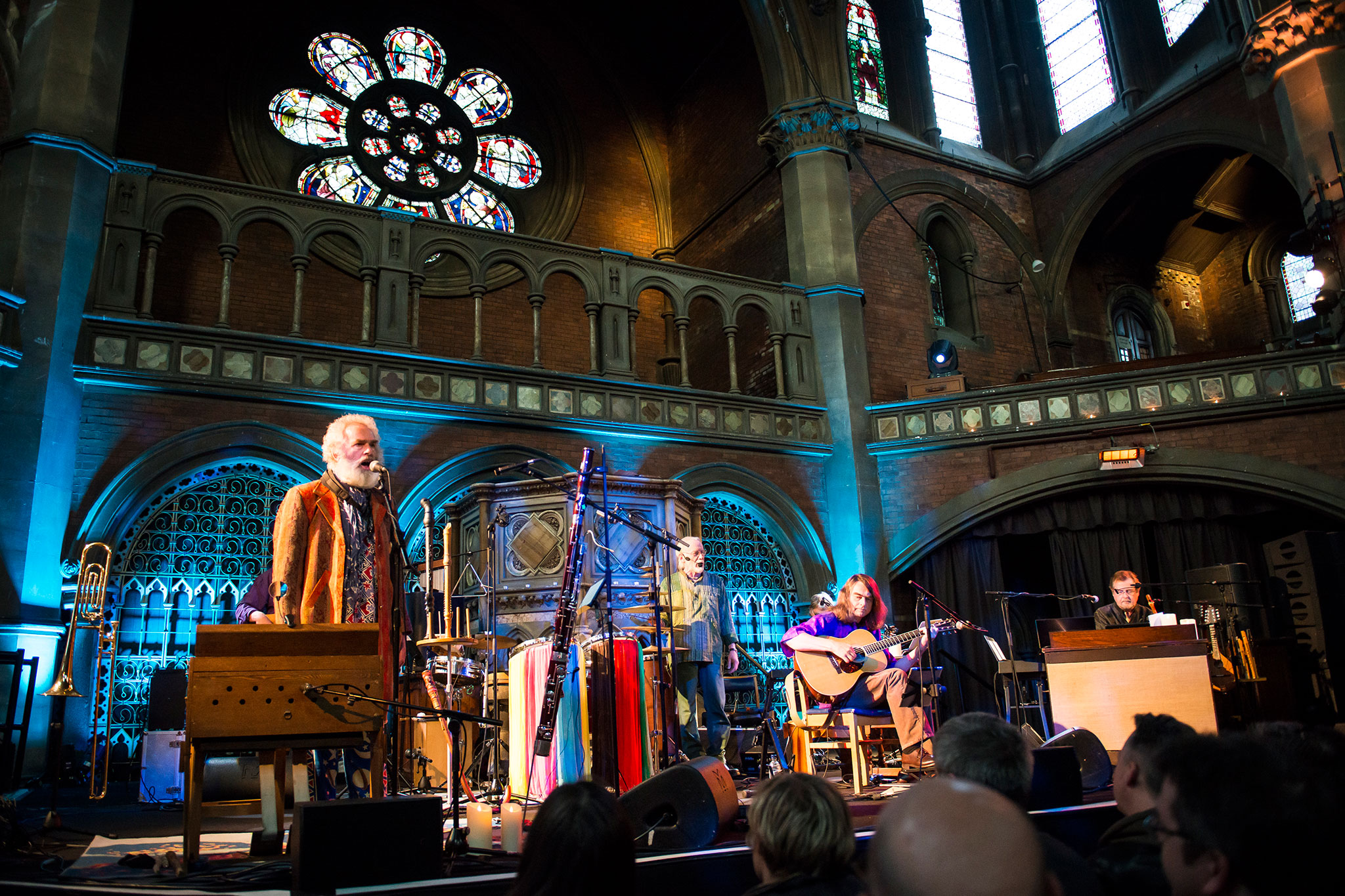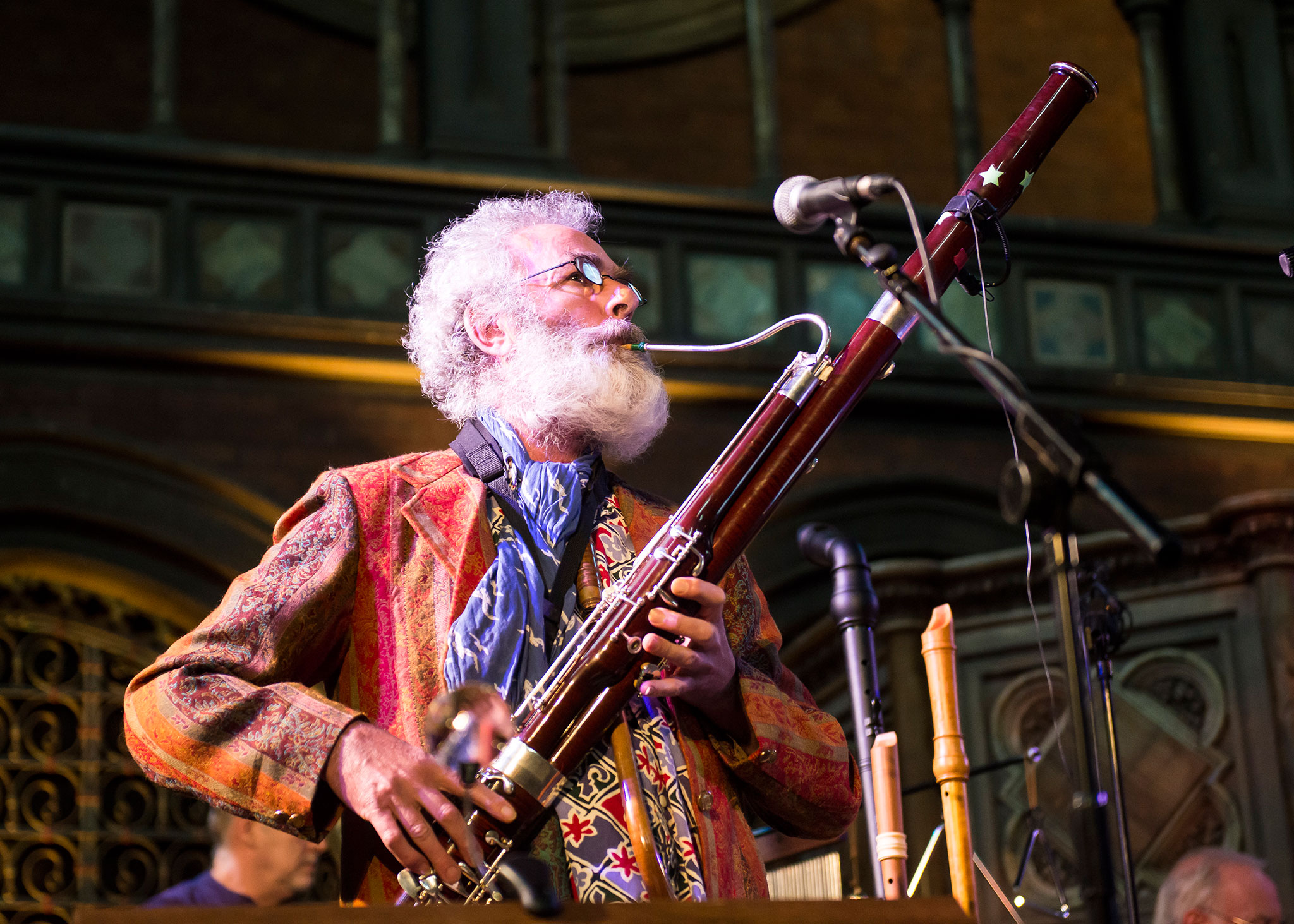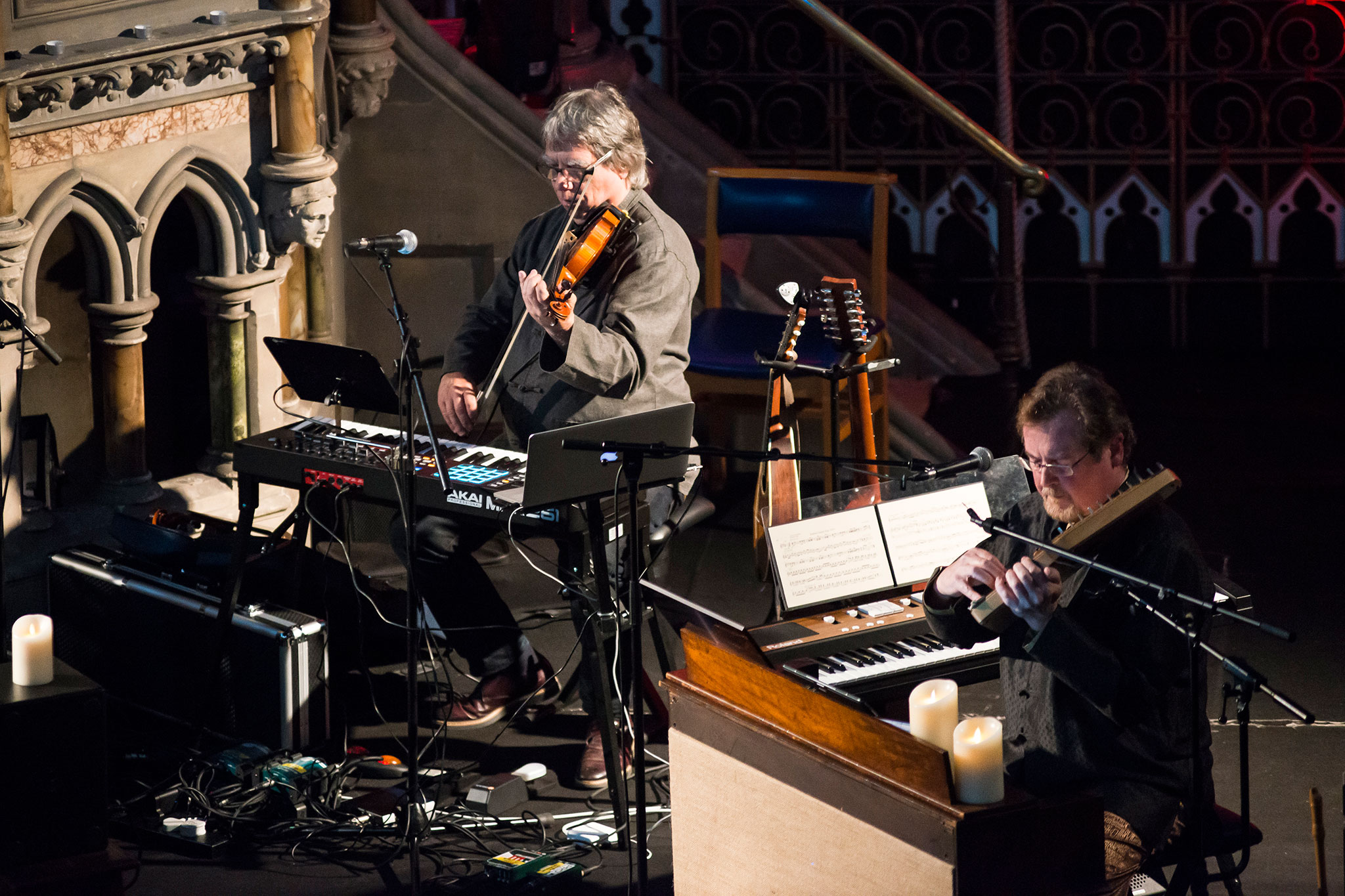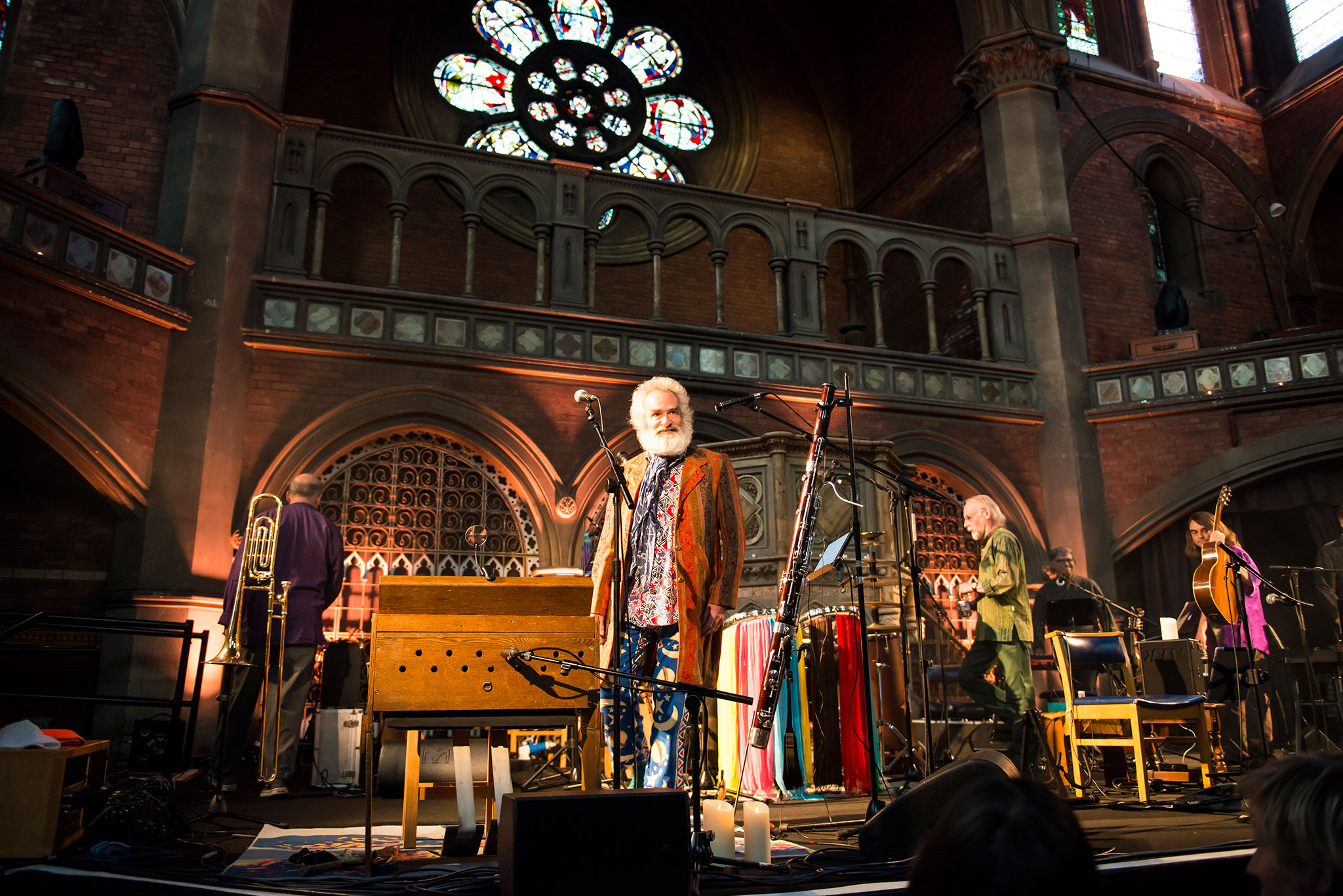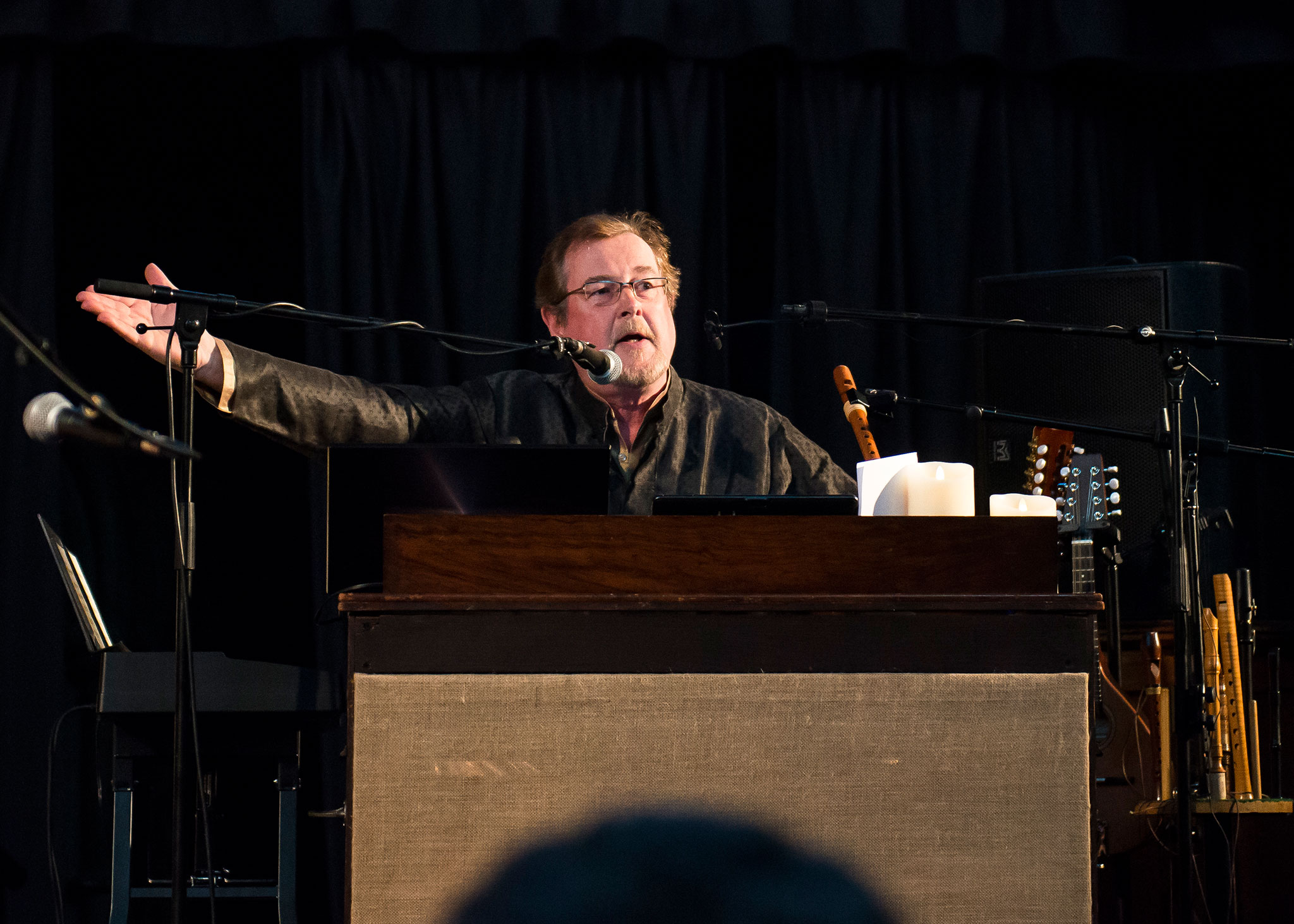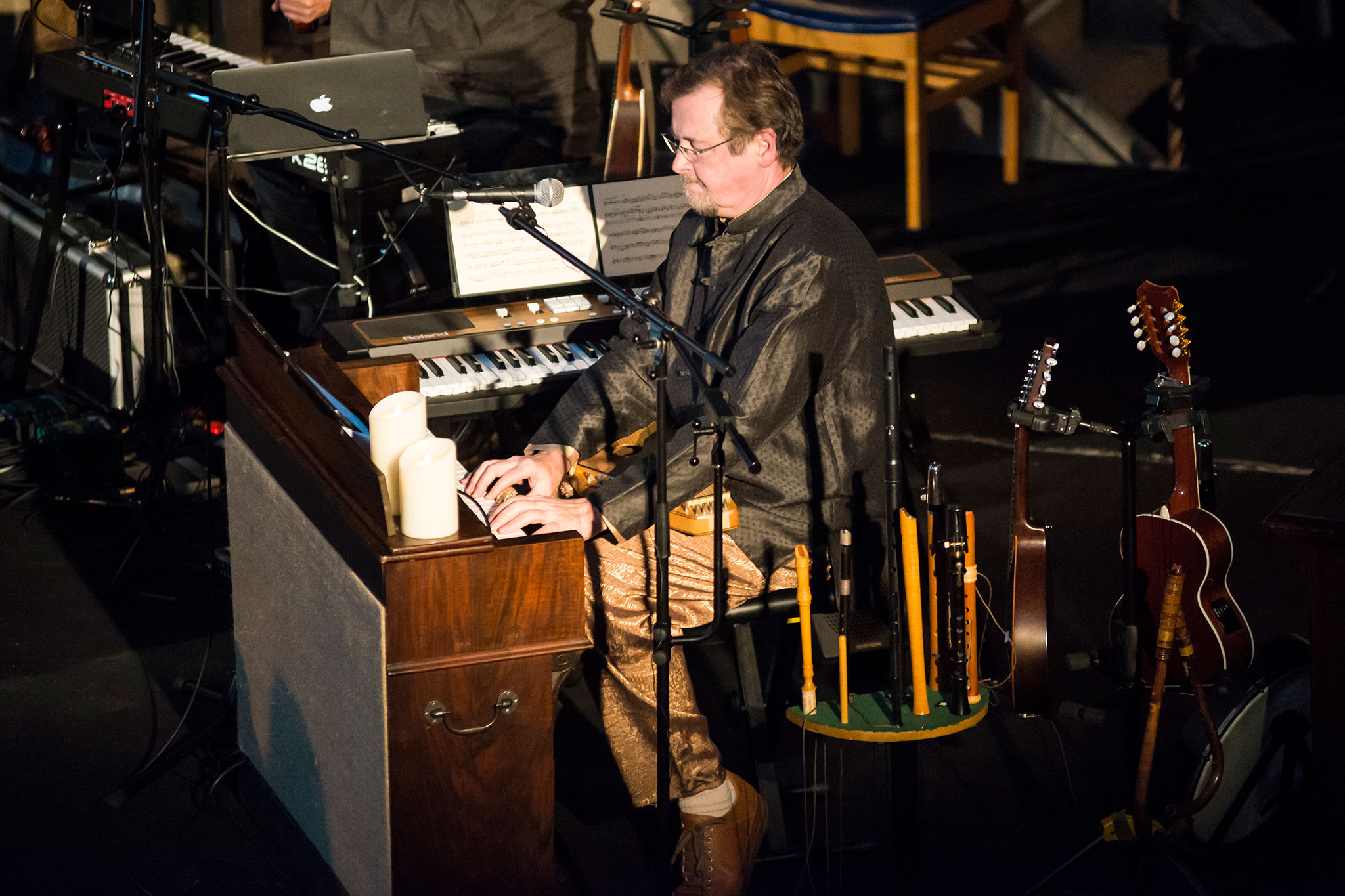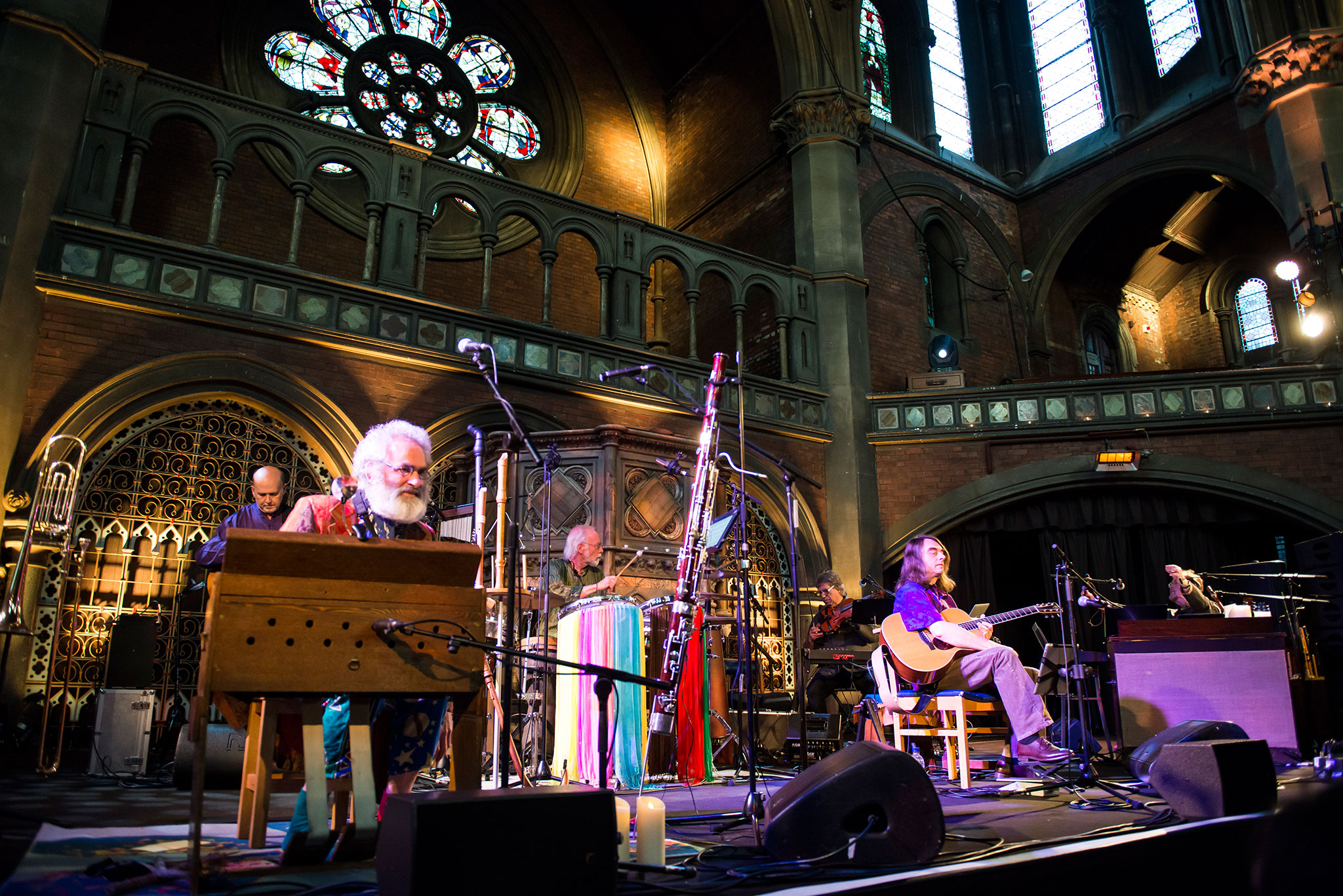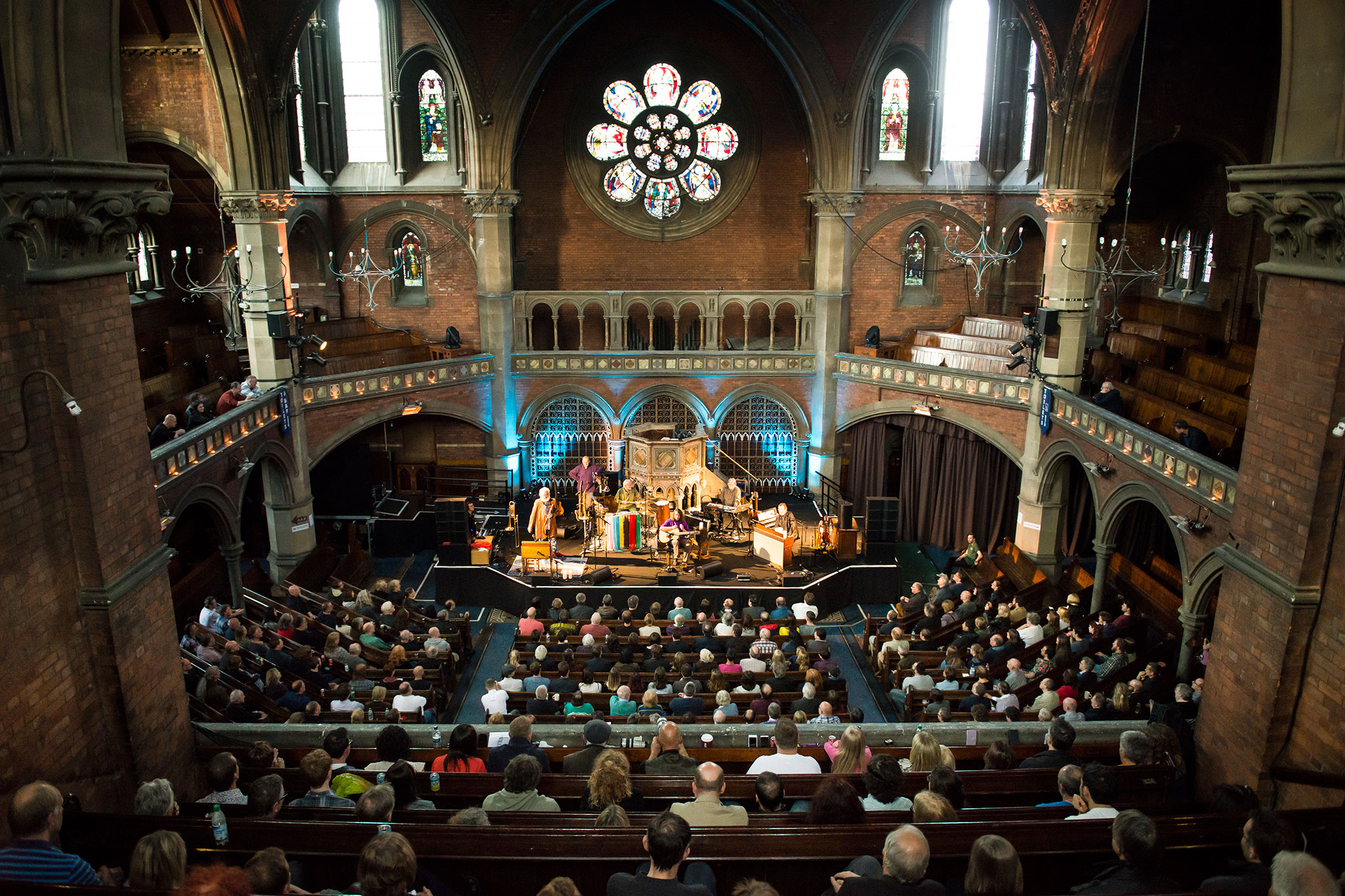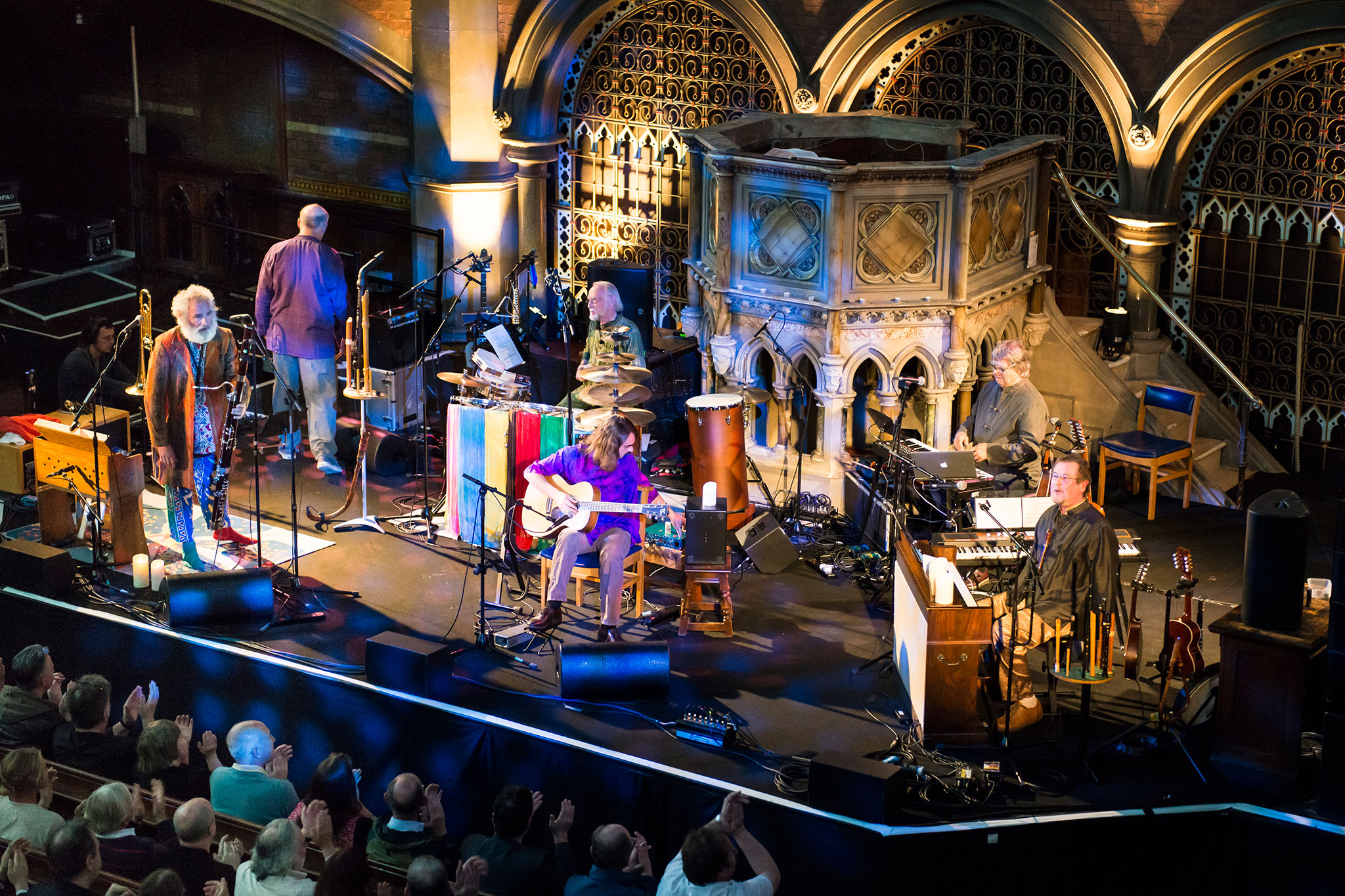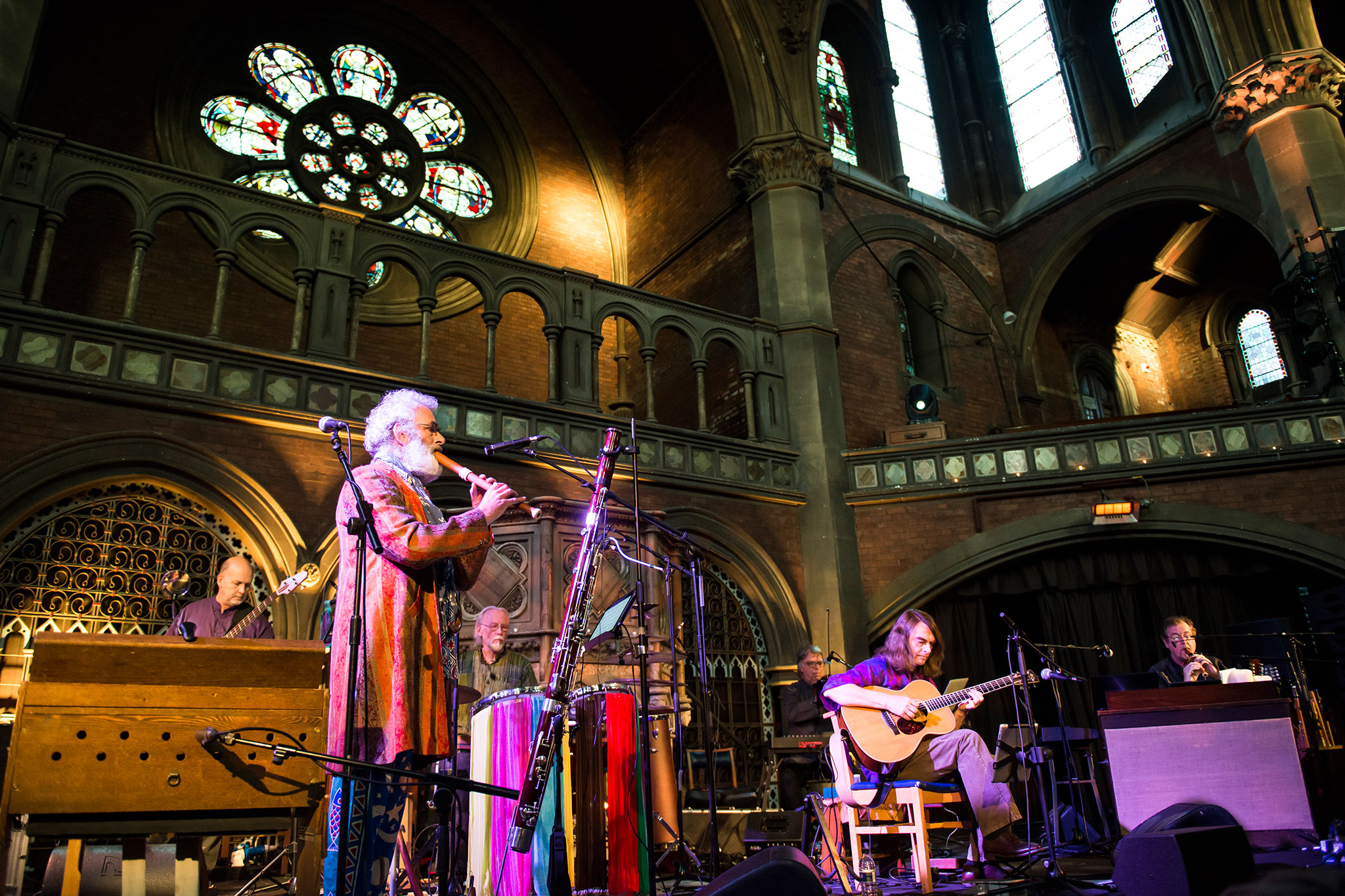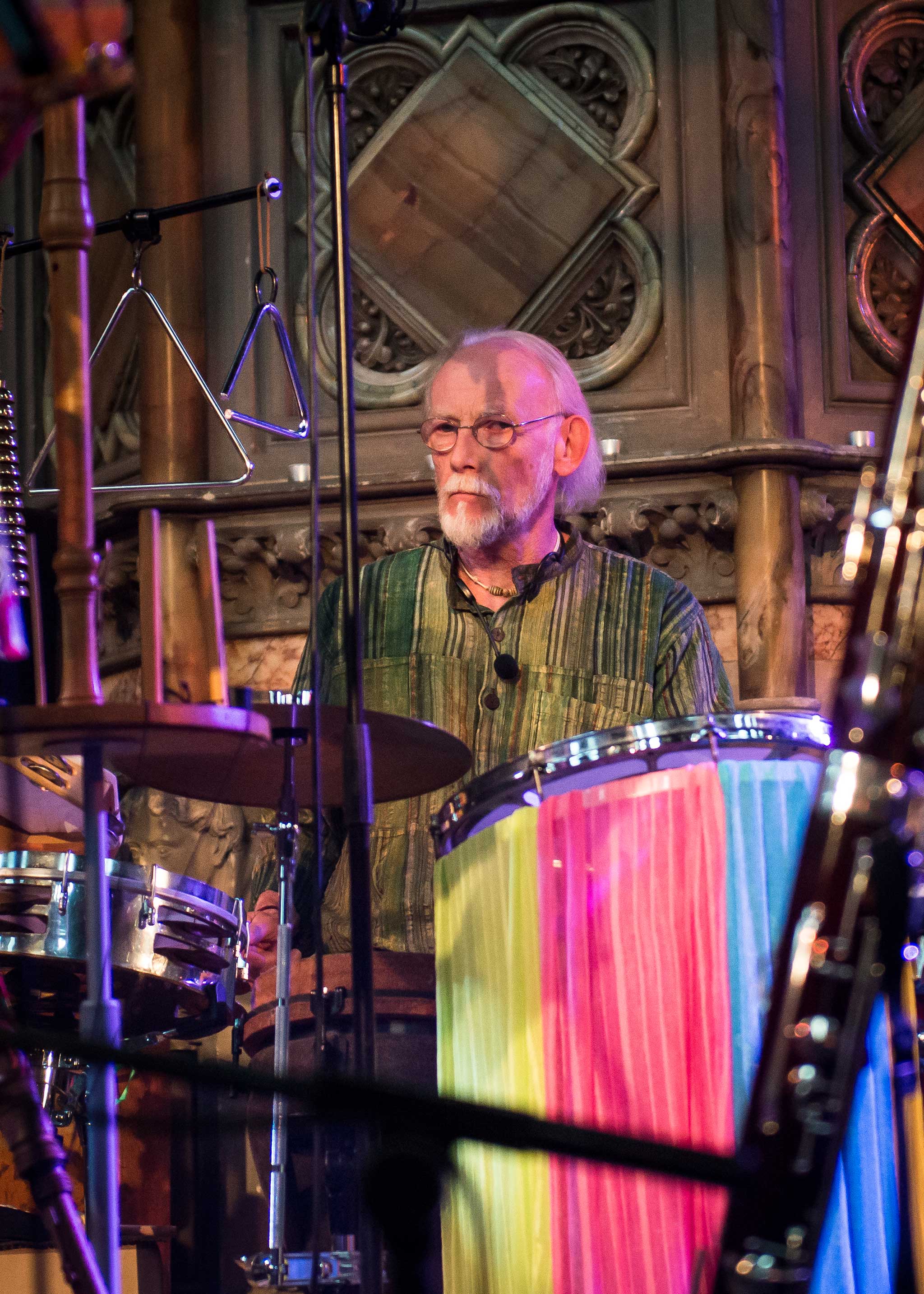“There aren’t many walks of life,” muses Richard Harvey, “in which you have to accurately recreate something you did when you were about 18, when someone’s just handed you a bus pass.” Cue audience laughter. “It’s hard!” he protests. Laughter subsides. “No – it’s fine,” he admits. And it is. These accomplished musicians are more than capable of reinhabiting the music of their youth, even if that music was often an arrangement of a traditional medieval folk ballad – anything but young.
Hard to believe in the modern age, but Gryphon’s unusual Renaissance instrumentation found them a cult 70s following. They scored Shakespeare’s The Tempest at the National Theatre for Sir Peter Hall and supported Yes in arenas. They were considered to be at the heart of the growth of progressive music.
By ’77 they’d parted ways, but reunited for a one-off show in 2009. Now they’re on a short tour for the first time since the pre-punk era. It’s not as if they all left music behind: Royal College of Music graduate and main spokesperson Harvey, for example, has composed well‑known film and TV scores. He and bushy-bearded woodwind player Brian Gulland began the group, swiftly joined by guitarist Graeme Taylor and percussionist Dave Oberlé. They’re all multi-instrumentalists and singers. Another Graham, Preskett, now joins the band and he is, offers Harvey, “engorged with talent”.
Harvey’s droll, raconteur qualities liven up the night. After the first standing ovation, he says, “That’s rather overwhelming. Steady now. People generally only stand up at our gigs when they’re walking out early.” Remembering their formative days, he chuckles, “I think, at folk clubs, we gave good bang for the bucks.”
A quiet riot of hippie garb, the stage is festooned with countless things you blow or strike to make peculiar sounds.
Beginning with – of course – Opening Move (from Red Queen To Gryphon Three), they’re a quiet riot of hippie garb and curious instruments. The stage is festooned with an array of crumhorns and bassoons and countless things you blow or strike to make peculiar sounds. The chapel setting is ideal if you wish to drift off into reveries about Henry XIII and Anne Boleyn, which isn’t as inappropriate as it sounds. When you do eventually spy a small laptop among the wind instruments, it seems wildly incongruous. “This is a medley of tunes from the 16th century, although we’re actually from the 1970s…”
The material is chiefly taken from their first three albums, with emphasis on the first. Juniper Suite and The Unquiet Grave are impeccably executed. It’s all a little calm and sedate at times, and items such as “a bassoon solo for the silver surfers” can’t be said to thrill. But by halfway through the second of two sets, the Gryphon reunion has worked up its own distinctive quirks, strangeness and charm. A novel twist on nostalgia.
